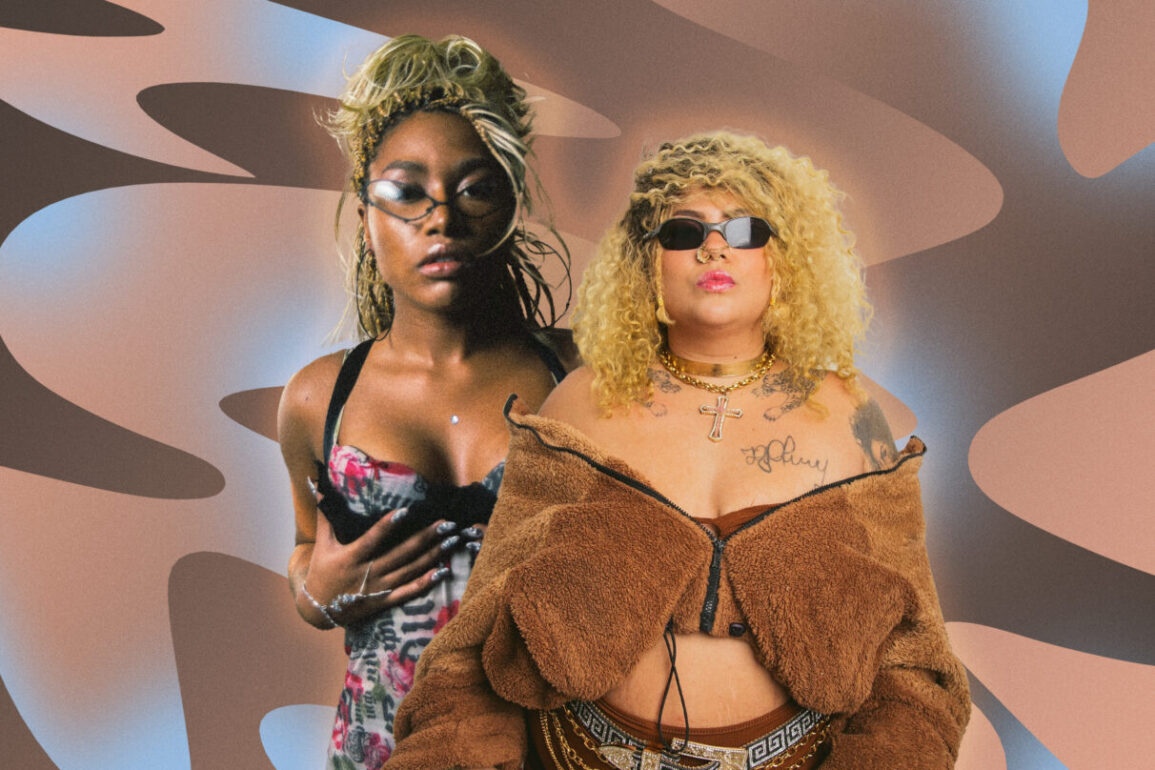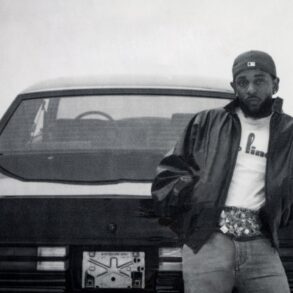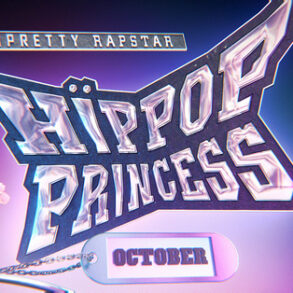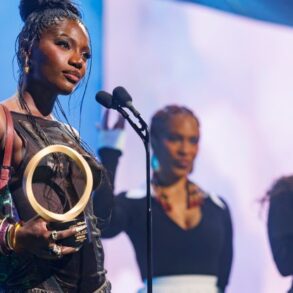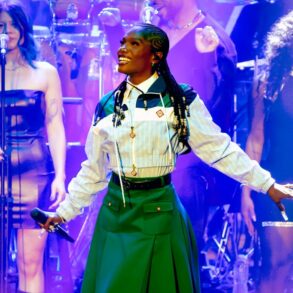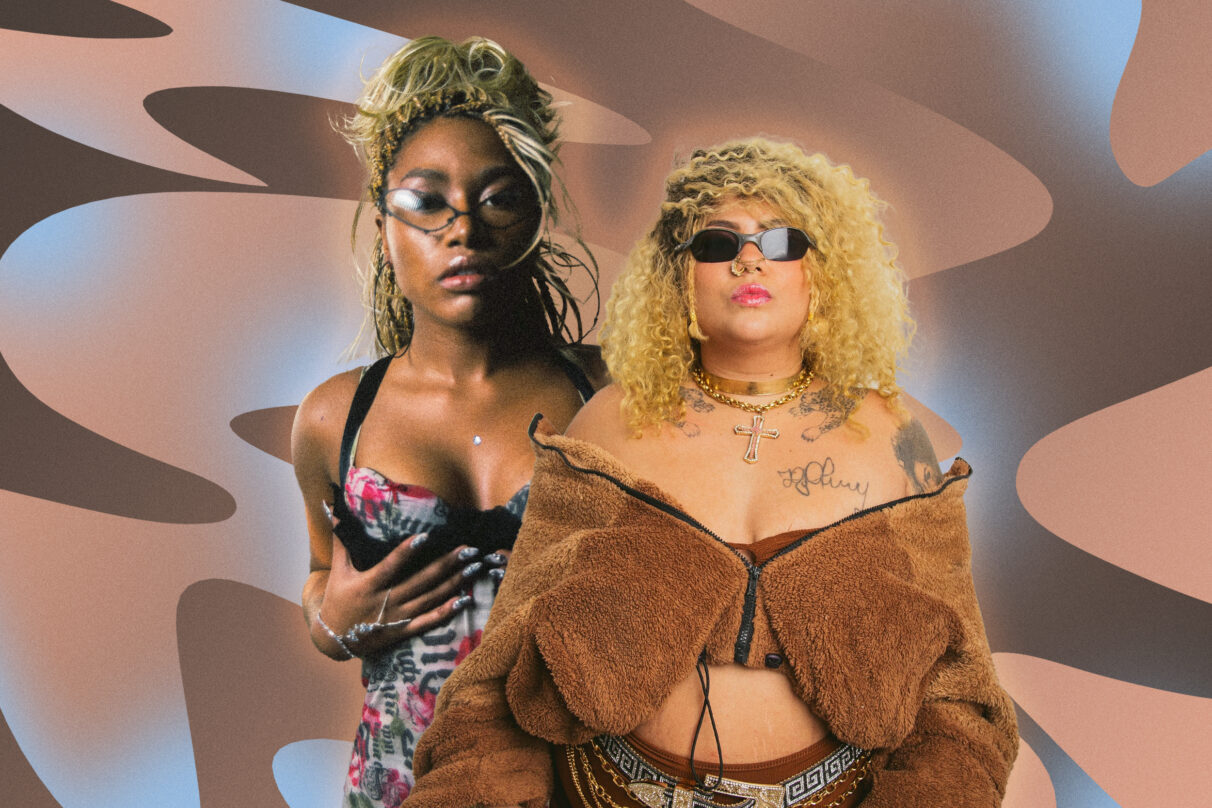
Just like with hip-hop in the U.S., women have always been an important yet lesser-acknowledged part of the Brazilian hip-hop scene. Since the movement started in the 1980s, female Brazilian rap has been a sub-niche of a genre that was niche itself, rap. Music by male rappers gained national momentum in the ‘90s, with the success of groups like Planet Hemp and Racionais MCs. But the rare moments of female rappers shining were still restricted to the underground, such as the critical success and awards won by Nega Gizza with the song “Prostituta,” in which she raps from the point of view of a sex worker dealing with society’s prejudice.
In the early 2000s, Negra Li broke the underground mold by collaborating with rock stars Charlie Brown Jr. and acting on TV. She became the most-known female rapper in Brazil, but not necessarily because of her raps. The reality of Brazilian female rap started to change with the rise of social media, YouTube, and music streaming platforms. Rappers like Karol Conká, Flora Matos, Drik Barbosa, Brisa Flow, Cynthia Luz, Tássia Reis, Lurdes da Luz, Karol de Souza, Stefanie, and Azzy are among the highlights from this era. Most of these names are still active, but it’s safe to say they’re now seniors to a new generation of young women who are using to good advantage the power of social media and the hype that the trap scene currently enjoys in Brazil.
Regardless of any relevant distinctions between rap and trap, this new generation of women is walking in the footsteps left by iconic female Brazilian rappers while also being heavily influenced by foreign names like Nicki Minaj and Megan Thee Stallion. Many of them are references in fashion and style (such as Slipmami), and run their own fashion brands (such as Ajuliacosta). But more importantly, they’re rhyming and flowing at increasingly high form, and they support each other in tracks such as “Set AJC” and “Poetisas no topo” — you may want to check these cypher-like projects if you’d like to hear them rhyming in full bloom. On the other hand, their solo singles are more tailored for commercial appeal, sometimes even inclined to pop.
As rap and trap explode in Brazil, you, unfortunately, may not see these 10 names as often in charts or social media mentions as much as the male artists — but you definitely should check them out.
Ebony
One of the main women in the spotlight of the rap scene in Brazil, Ebony’s lyrics include explicit sex and geek references. But she’s at her fiercest form when she addresses her competition. In 2023, Ebony shook the rap scene with the diss track “Espero que entendam” aimed at her male counterparts and even their fandom (“Male rappers’ fans are just like pop diva fans,”, she raps). Although she name-dropped several A-list rappers, none dared to respond.
Ajuliacosta
Ajuliacosta draws attention for her stage presence and ability as a lyricist, which she often puts to advise fellow female artists (“You better watch who you include in your business / A smart b*tch [should] never have many partners,” she raps in her verse in “Poetisas no topo 3”). In her latest single, “Você parece com vergonha,” she also shares relationship advice on a track about women in repetitive relationship patterns with abusive men. Plus, she’s also an entrepreneur at heart. As a teenager, she would customize her own clothes and apply the knowledge learned by her work in a factory to her own fashion business. Ajuliacosta is now a rising name in the trap scene, but she can’t help but be a businesswoman as well — be it by running her music career and her fashion brand AJC, or putting out projects like the all-female cipher-like set of tracks “Set AJC.”
Maru 2D
Singer, rapper, and songwriter Maru2D started as a funk MC in Rio de Janeiro. It wasn’t until 2022 that she debuted in the trap scene, though her confidence and flow make it seem like she’s been doing it forever. Alternating between rhyming and singing, Maru2D uses lyrics to make strong political statements (in her verse in “Poetisas no Topo 3,” she raps: “Fuck the right wing, I hate Bolsonaro”), or showcase her storytelling skills, rapping about love affairs and being a woman in the favelas. She also balances her music career with being a mother and a student.
Mac Júlia
Historically, neighboring States São Paulo and Rio de Janeiro dominate the funk and hip-hop scenes in Brazil. But in the 2020s, Minas Gerais has become an exponent of new talent in these genres too, even setting new trends like funk mtg. One of the ascending names of Minas Gerais rap is Mac Júlia, whose collaboration with rapper FBC and producer VHOOR in the nostalgic baile funk track “Se tá Solteira” went viral on TikTok in 2021. MacJúlia also raps about female empowerment, love, and sex in smoother tracks like “Sofá, Breja e Netflix.”
Tasha & Tracie
Before becoming rap stars, these two sisters of Nigerian descent were already fashion icons and activists. In 2014, they created the fashion blog Expensive $h1t and rapidly gained recognition with their content that taught Black marginalized women how to customize and upcycle clothes. They also created the collective MPIF (acronym for Mulher Preta Independente de Favela, or Independent Black Woman from Favela). Music is now one of the many mediums for their expression — one that allowed them to perform in stages like Rock in Rio. But still, their fashionista and businesswomen sides flow through in tracks like “Arrume-se comigo,” in which they flash out brand names but also brag about their golden touch to fashion (“[This] was worth BRL 300, thanks to my touch it’s now BRL 10k,” they rap).
N.I.N.A.
N.I.N.A.’s versatility stands out in different types of beats and collaborations with other rappers. She’s a respected name by fans of trap breeds like grime and drill. It’s curious that her teenage dream was becoming a philosophy teacher, but given how comfortably she plays with words and meanings in her lyrics, you may see her dream turned into reality in a different form.
Duquesa
Duquesa comes from Bahia, a Brazilian state with a smaller tradition in hip-hop compared to genres like axé and pagodão baiano. But that didn’t stop her from gaining national recognition, to the point that she got signed by Boogie Naipe, the production company owned by Brazilian rap legend Mano Brown. Her unique flow and ear for commercially appealing melodies are making her a rare case of a female rapper selling out concert halls in Brazil.
Katú Mirim
Proudly carrying out her identity as a bororo woman, Katú Mirim uses rap as an educative tool to tell stories of colonization in Brazil from the point of view of the colonized. In tracks like “Indígena futurista,” she contrasts lyrics about ancestrality with futuristic-inspired beats. Katú is also an actress and activist involved in several projects related to the uplifting of indigenous communities.
Lai$ Rosa
Lai$ Rosa might have a sweet tone, but her flow is sharp. She does not sugarcoat when tooting her own horn either. Self-defined as “a verdadeira vadia” (“the real bitch”) and “big sized,” she often includes English lyrics and expressions in her songs like “Basic B!tch” and “Like What.”
Mc Luanna
From Bahia, Mc Luanna is also a dancer who grew up influenced by several art forms, from circus to her brother’s deejaying. But it was during the COVID-19 pandemic that she fully betted on her music career. In her music, she addresses female rivalry in tracks like “Piranha” and “Karma,” but she also reflects on her journey as a marginalized woman (“The right to speak is given to those who know how to listen / Life teaches you, but first it hits you,” she raps in “Direito de voz”).
This post was originally published on this site be sure to check out more of their content.




